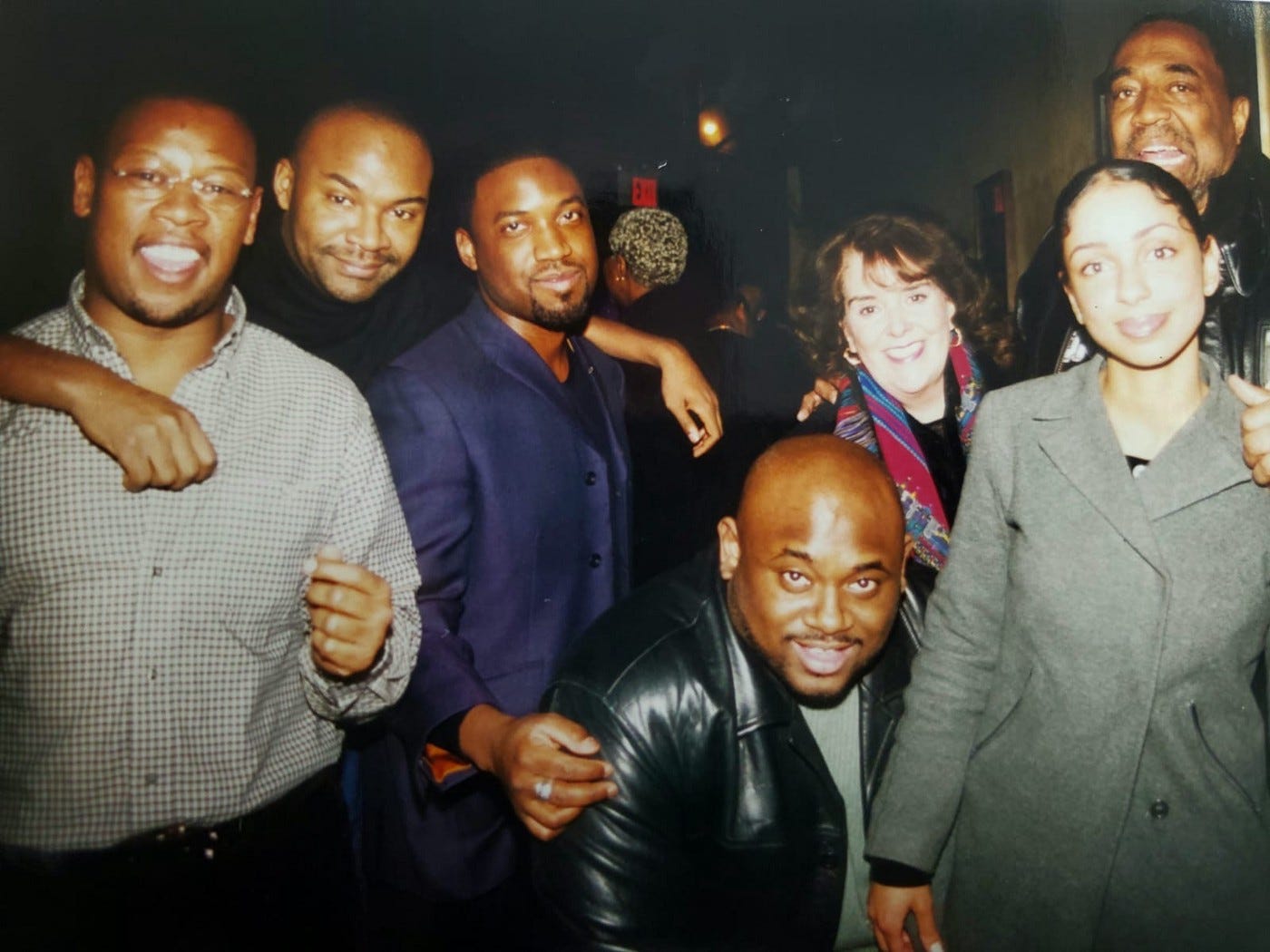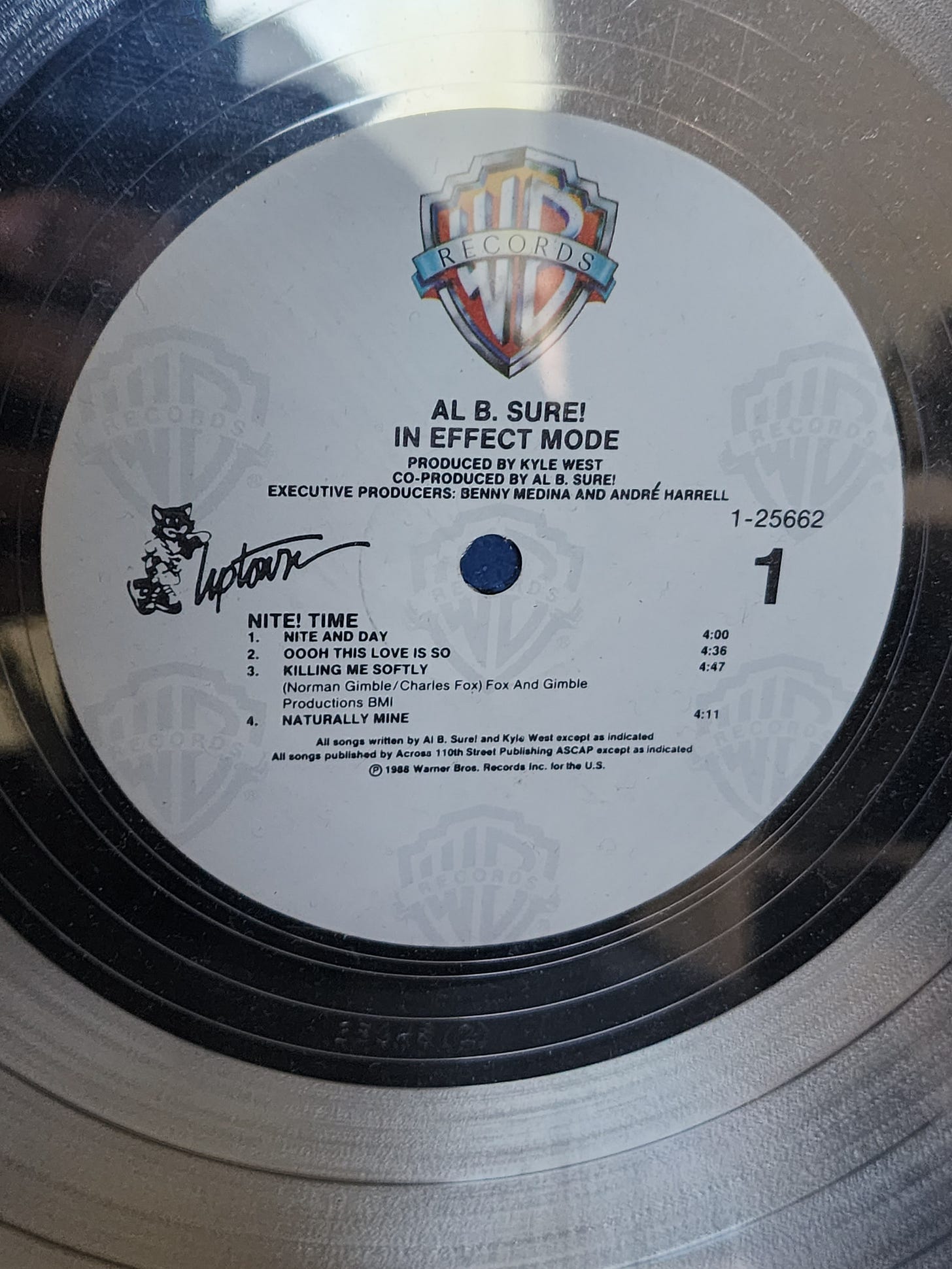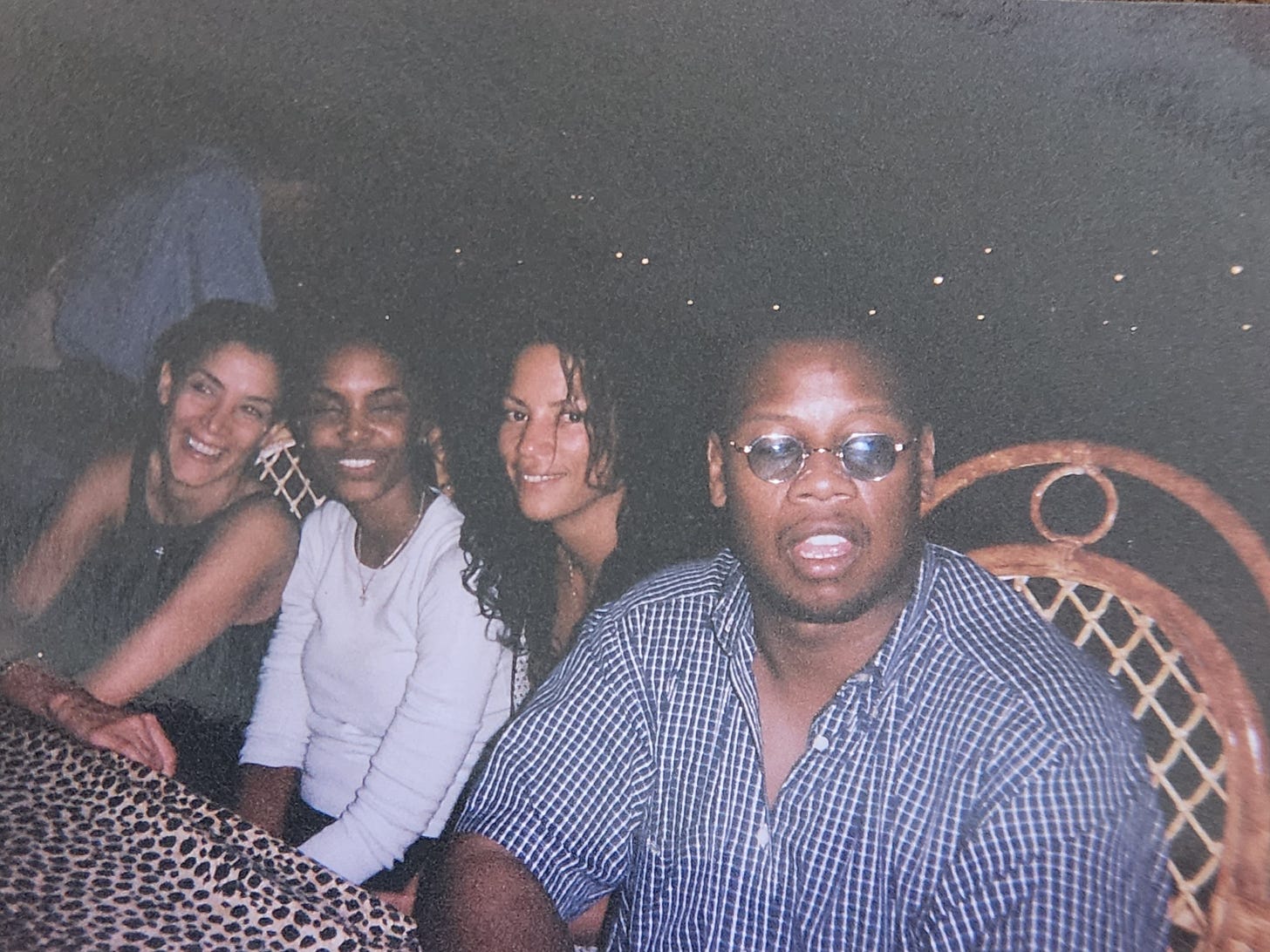REMEMBERING ANDRE HARRELL 3 YEARS LATER
The record executive died on May 7, 2020 in Los Angeles
The year 2020 will go down in history as one of the saddest, most contentious in world history. The pandemic brought deaths and dysfunctions that we’re still coming to grips with. For me the spring of that year was truly terrible. My father died April 25. My mentor Robert ‘Rocky’ Ford May 19. And today, three years ago, my long time friend Andre Harrell passed away in an West Hollywood apartment. The thoughts below a part of a book I am struggling to write about that traumatic time.
What I will always remember about being young and hanging with Andre at Lucky Strike on Grand Street, the Coffee Shop on Union Square, or the Time Café on Lafayette were the debates. It was the same conversation for years, albeit with different names slotted it -- who was “hot” that week in music, film and style. Denzel or Wesley? LL or Kane? Naomi or Tyra? The debate was endless. The opinions passionate. The information essential. If you got beat down this week there was always another day to be right. I viewed Andre as much a cultural critic as a music executive. Though Andre, he never wrote a line of prose, he was one of the most insightful and effective interpreters of cultural shifts I’ve ever known. Along with founding Uptown Records in 1986, grooming an inexperienced young Sean Combs to be an executive, signing the iconic Mary J. Blige as a recording artist, and releasing the first records made in the “new jack swing” and “hip hop soul” styles, Andre broke down trends with the nuance of a sociologist. He was the proof that to be a truly great cultural gate keeper, whether as a record executive, book editor, or film producer, you have to possess a refined aesthetic that guides who they sign and how you cultivate their talent
ABOVE With Andre Harrell and a slew of media and music business folks at some early ‘90s party in New York, including Source editor Selwyn Hinds, music executive Steve Stout and singer Mya.
Andre had several voices that he employed to express joy, relay advice, or bask in the details of an experience. His joyous voice said life was a circus, he was the ring master, and the music you were partying to was the best you’d ever dance to, and the people you were with the planet’s best party people. That voice was the sound of satisfaction. You were where you should be – where everyone should be – if they wanted to feel celebration in their bones. That was a great voice to have, but it wasn’t the voice that bonded me to Andre. He had an analytical voice that was slower paced, conversational, and calm. That was the voice of understanding that cultivated and encouraged talent.
ABOVE The first major hit Andre’s Uptown Records enjoyed was Al B. Sure!’s debut album, ‘In Effect Mode,’ anchored by the single “Nite and Day.”
In 2003 the great cyberpunk futurist William Gibson wrote a novel, ‘Pattern Recognition,’ about a “cool hunter” hired by brands to advice on new trends before they broke. You could define this as the science of analyzing peoples’ actions, shifts in society and in ourselves. Well, decades before Gibson’s novel, Andre was already manifesting pattern recognition in the sound, styling, and promotion of the aesthetic of his Uptown Records. But it wasn’t just a professional skill. Through your clothes, language and bearing, Andre could be prophetic in telling you, not who you where, but what you should be doing and who you should be doing it with.
ABOVE Andre in St. Barths with model Veronica Webb, the late Kim Porter and model Kara Young in 1998.
His superpower was understanding the undercurrents of black culture and finding talent that reflected, not just their personal experience, but that of a community. Andre wasn’t just interested in hit records (though he loved having them), but songs and performers that expressed the unspoken. Andre would expound on why an artist was “aspirational,” how they could “define the culture,” and why their development “would lead their fans with them” to new experiences. It was these sessions with Andre (and another late music business friend Gary Harris) that sharpened me as an historian. Through Andre’s eyes I saw first-hand the passion, vision, and will power essential to shaping a musical movement. What I was doing for a living was making judgements on art, making distinctions between what was important and what wasn’t. Andre was doing the same thing, except he had to do the hard work of turning raw talent into singers, rappers, and executives. His success with Uptown, and his enduring legacy, was in transforming philosophy into action.





It's tough to lose such an important voice in your life....and also a huge blow to the community. It's been a rough few years with many losses but new voices will emerge (they always do) and keen documentarians like yourself will be here to record the reflections.